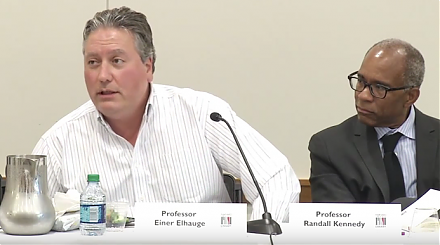

2019-01-02 06:28:00 Wed ET
federal reserve monetary policy treasury dollar employment inflation interest rate exchange rate macrofinance recession systemic risk economic growth central bank fomc greenback forward guidance euro capital global financial cycle credit cycle yield curve
New York Fed CEO John Williams listens to sharp share price declines as part of the data-dependent interest rate policy. The Federal Reserve can respond to stock market plunges, but key FOMC members still view the U.S. economy as sufficiently strong to grow with higher interest rates. Williams emphasizes softening the central bank language that the next 2 interest rate increases are only economic projections. The upward interest rate trajectory is not a matter of right-or-wrong with Wall Street, and the central bank cannot be on autopilot at this stage of the real business cycle. Williams expects U.S. real GDP to slow to 2%-2.5% in 2019 from 3%-3.5% in 2018, whereas, inflation should be around 2% in 2019. Trump tariffs continue to pose a major tone of economic policy uncertainty.
Treasury Secretary Steven Mnuchin tries to assuage bank CEOs and stock market investors that the Trump administration has no power to oust Fed Chair Jay Powell for his recent interest rate hike. Mnuchin seeks consultation with the Securities and Exchange Commission and Federal Reserve on the partial government shutdown and stock market turmoil. This stock market plunge protection team hence receives reassurance from banks that there is ample liquidity for lending to both consumers and firms.
If any of our AYA Analytica financial health memos (FHM), blog posts, ebooks, newsletters, and notifications etc, or any other form of online content curation, involves potential copyright concerns, please feel free to contact us at service@ayafintech.network so that we can remove relevant content in response to any such request within a reasonable time frame.
2019-01-11 10:33:00 Friday ET

The Economist Intelligence Unit (EIU) continues to track major business risks in light of volatile stock markets, elections, and geopolitics. EIU monitors g
2019-09-11 09:31:00 Wednesday ET

Central banks in India, Thailand, and New Zealand lower their interest rates in a defensive response to the Federal Reserve recent rate cut. The central ban
2017-11-27 07:39:00 Monday ET

Is it anti-competitive and illegal for passive indexers and mutual funds to place large stock bets in specific industries with high market concentration? Ha
2020-08-19 10:32:00 Wednesday ET

Corporate strategies, portfolio choices, and management memes add value and drive business process improvements over time. Andrew Campbell, Jo Whitehead,
2023-06-28 09:29:00 Wednesday ET

Carmen Reinhart and Kenneth Rogoff delve into several centuries of cross-country crisis data to find the key root causes of financial crises for asset marke
2019-12-01 10:31:00 Sunday ET

Goop Founder and CEO Gwyneth Paltrow serves as a great inspiration for female entrepreneurs. Paltrow designs Goop as an online newsletter, and this newslett